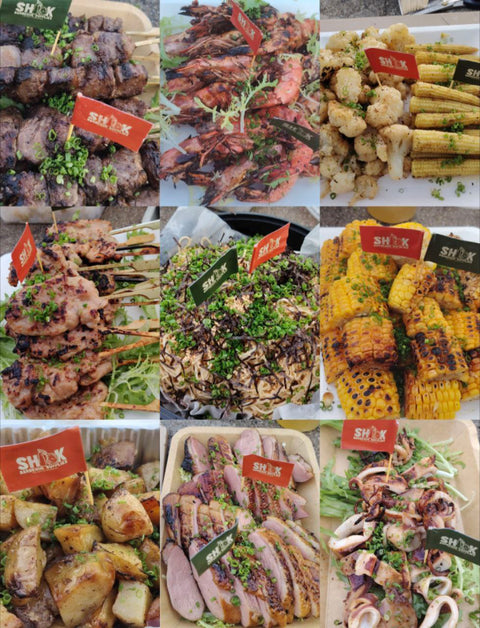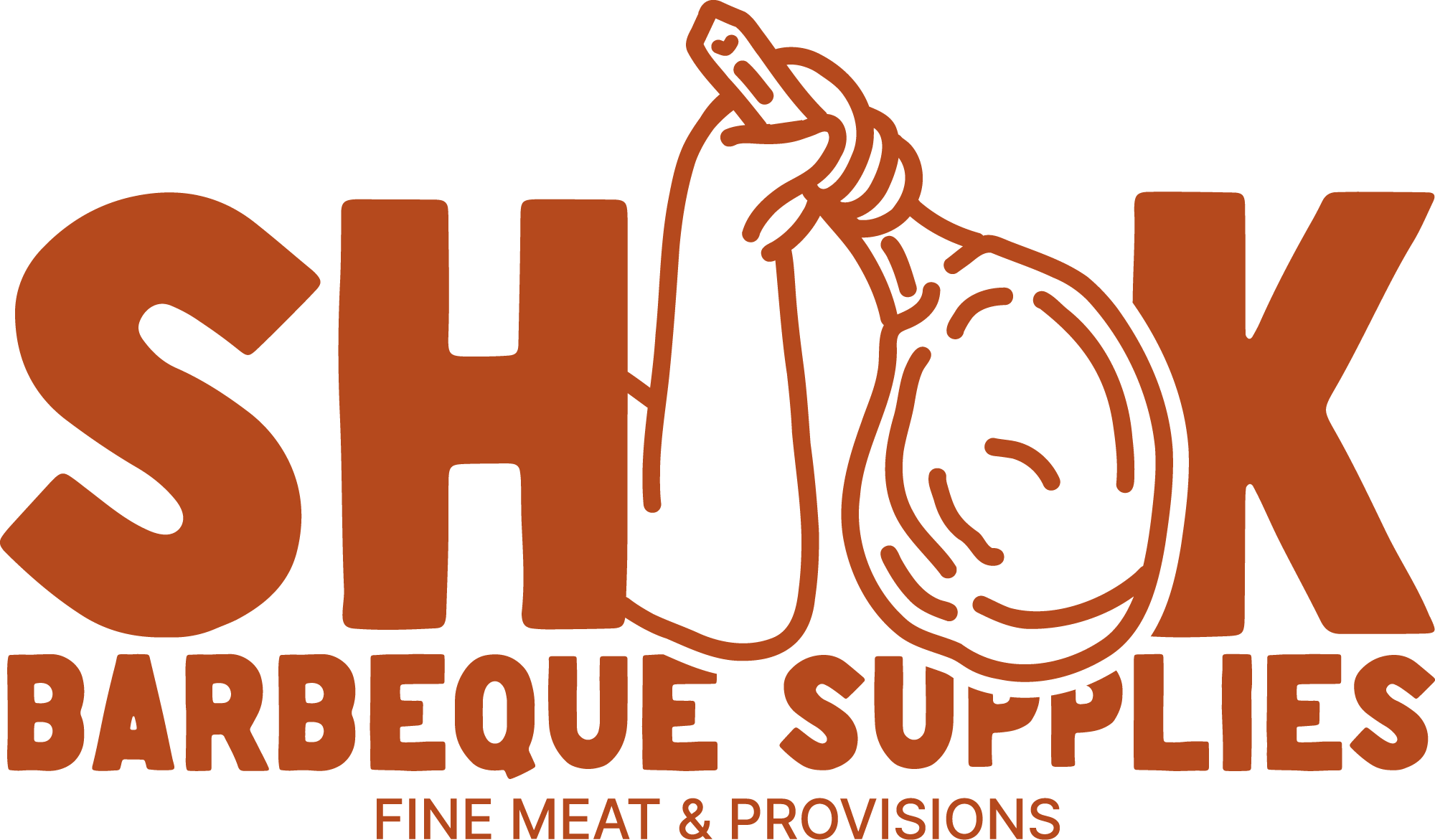Navigating the Meat Market in Singapore
Navigating the meat market in Singapore can feel like traversing a culinary jungle. With a plethora of butchers, online meat shops, and supermarkets, how do you ensure you're selecting the best quality meat? This guide goes beyond the basics, providing you with a chef's insights into selecting top-quality meats, understanding what makes meat good, and where to find the best cuts.
Understanding Meat Quality and Grades
Quality in meat is determined by several factors including grading, which assesses aspects like marbling, color, and texture. For example, high marbling in beef usually means more flavor and tenderness. In Singapore, look for meat graded with these considerations in mind. However, grading alone doesn't tell the full story.
Photo Example: A comparison photo of highly marbled beef versus low marbled beef.


What Is Meat Quality?
Meat quality is a broad term that refers to the various characteristics of meat that determine its suitability for consumption. It encompasses a range of factors, including taste, texture, nutritional value, and overall freshness. The quality of meat can vary greatly depending on a variety of factors, such as the animal’s breed, how old the animal is, its diet, and how it was raised and processed.
Flavor and Texture: High-quality meat should have a distinct, savory flavor that is neither too bland nor too overpowering. The texture of the meat is also an important factor in determining its quality. Tender, juicy meat that is easy to chew and digest is generally considered to be of higher quality than tough, dry meat.
Nutritional Value: High-quality meat should be relatively lean and contain a good balance of nutrients. It should also be free from harmful additives and preservatives that can compromise its nutritional value.
Freshness: Fresh meat should be free from any unpleasant odors or discolorations and should be stored at the proper temperature to prevent spoilage.
The Importance of Meat Origin and Ethical Practices
Not all meats are created equal. The country of origin matters significantly due to different farming practices. For instance, Japanese Wagyu Beef is renowned not just because it's from Japan, but because of specific breeding methods and strict dietary regimens that enhance its quality. On the other hand, New Zealand and Australian meats are prized for their rigorous animal welfare standards and natural grazing methods, often resulting in free-range and organic certifications.
Explainer: What does free-range and organic mean, and why do they matter?

Free-Range: Free-range meat comes from animals that are allowed to roam freely outdoors for at least part of the day. This practice generally results in healthier, less stressed animals, which in turn can produce better quality meat. Free-range meats are often more flavorful and have a better texture due to the animals’ more natural lifestyle. For example, free-range chicken from New Zealand is known for its tender meat and rich flavor, a result of the birds' healthy, stress-free environment.

Organic: Organic meat comes from animals that are raised without the use of synthetic pesticides, fertilizers, antibiotics, or growth hormones. They are fed organic feed and have access to the outdoors. Organic farming practices are designed to promote sustainable agriculture and animal welfare. Meat labeled as organic is typically perceived as healthier and more environmentally friendly. For instance, organic beef from Australia and New Zealand is highly sought after for its superior taste and health benefits. Similarly, our Japanese Wagyu is a prime example of high-quality meat known for its exquisite marbling and rich flavor, attributed to the strict breeding and feeding practices in Japan.
Choosing the Right Supplier
Selecting the right supplier is crucial. A reputable supplier doesn’t just sell meat; they provide transparency about where their meat comes from, how it was raised, and how it was processed. Shops like Huber’s Butchery and The Meat Club in Singapore are known for their high standards and transparent practices. They often provide detailed backgrounds on the meat’s origin, feed, and handling.
Learning About Meat Cuts
Different dishes require specific meat cuts. Understanding which cut to use for which cooking method can elevate your cooking:
- Quick Cooking: Tender cuts like sirloin or ribeye are best for grilling or pan-frying.
- Slow Cooking: Tougher cuts like chuck or brisket are ideal as they break down and become tender over time.
Visual guide on different meat cuts

How Is Meat Quality Measured?
The quality of meat is determined by various factors such as the pH of meat, color, texture, and fat content. The pH of meat is an essential factor that determines its quality. The pH of fresh meat ranges from 5.5 to 6.2 and is measured using a pH meter. A pH meter is a device that measures the acidity or alkalinity of meat, on a scale from 0-14 where >7 is alkaline, and <7 is acidic.
Meat & pH Levels
Below are the common meat cuts and their ideal pH range:
- Pork: 5.6-5.8
- Beef: 5.5-6.2
- Lamb: 5.8-6.0
Additional meat products & pH ranges:
- Mixed meat in vinegar: 4.5-5.2
- Raw fermented sausage: 4.8-6.0
- Canned meats: 5.8-6.2
- Blood sausages: 6.5-6.8
- Muscle tissue (directly after slaughter): 7.0-7.2

What Factors Affect pH in Meat?
As previously mentioned, the pH of meat is affected by several factors:
- Animal Age: Younger animals have a higher pH, while older animals have a lower pH due to differences in glycogen levels.
- Diet: High-carbohydrate diets increase glycogen storage, resulting in higher pH levels post-slaughter.
- Stress: Stress before slaughter releases adrenaline, depleting glycogen stores and lowering pH.
- Processing Techniques: Electrical stimulation and aging can influence pH, affecting tenderness and flavor.
Why Is High pH in Meat An Issue?
High pH in meat can lead to a reduction in meat quality, resulting in tough, dry meat with a reduced shelf life. It can also provide an ideal environment for bacteria growth, increasing the risk of foodborne illness.

Signs Of Meat With A High pH:
- A purple appearance
- Coarse texture
- Loss of moisture
- Reduced shelf life from bacterial growth
- Despite cooking, the meat will remain pink
Tips for Buying and Storing Meat
When buying meat:
- Purchase as close to the cooking date as possible.
- Look for clear labeling that shows the source and grade of the meat.
- If storing, keep it in the coldest part of your refrigerator, or freeze if not using immediately.

Storage Tips: Proper storage and thawing are essential to maintain the quality and safety of your meat. Here are some key points:
- Refrigeration: Store meat in the coldest part of your fridge, typically the bottom shelf. Raw meat should be kept in a sealed container or wrapped tightly to prevent cross-contamination.
- Freezing: For longer storage, freeze meat in airtight packaging. It’s best to remove as much air as possible to prevent freezer burn. Use vacuum-sealed bags if available.
- Thawing: The safest way to thaw meat is in the refrigerator. This method keeps the meat at a safe temperature while it defrosts. Plan ahead, as this process can take several hours to a full day depending on the size of the meat. For quicker thawing, you can use the cold water method—place the meat in a sealed plastic bag and submerge it in cold water, changing the water every 30 minutes. Never thaw meat at room temperature as this can promote bacterial growth.
- Cooking Directly from Frozen: While not ideal for all cuts, some meats like steaks and chops can be cooked directly from frozen. Adjust cooking times accordingly and ensure the internal temperature reaches the recommended level for safety.
Storage Tips: A step-by-step visual guide on how to properly store and thaw meat.( Coming Soon )
Online Meat Shopping in Singapore
Online platforms can be a boon for convenience but choose wisely. Platforms like Shiok Butcher Shop offer ethically sourced and traceable meats, providing peace of mind alongside convenience. They allow you to understand exactly where your food comes from.
Conclusion
Choosing the right meat isn’t just about picking a piece off the shelf; it involves understanding its source, handling, and how it fits with your culinary needs. Whether you're a home cook or a professional chef, starting with high-quality meat is essential for creating flavorful, healthy meals.
Ready to enhance your cooking with the best meats in Singapore? Browse our Butchery Collection today for premium cuts that promise exceptional taste and quality. Connect with us for personalized recommendations and tips on selecting the perfect meat for your next culinary masterpiece.
This blog aims to empower you with comprehensive knowledge, practical tips, and trusted resources to make informed meat-purchasing decisions in Singapore’s diverse market















